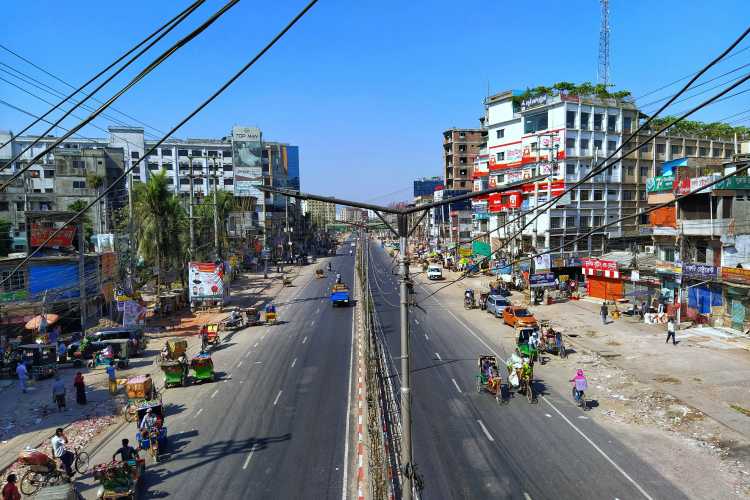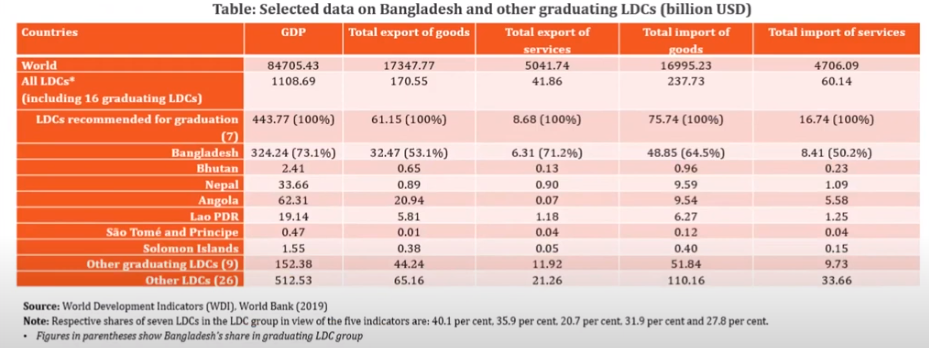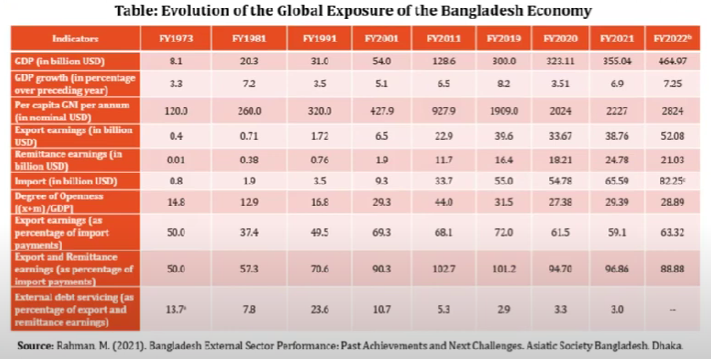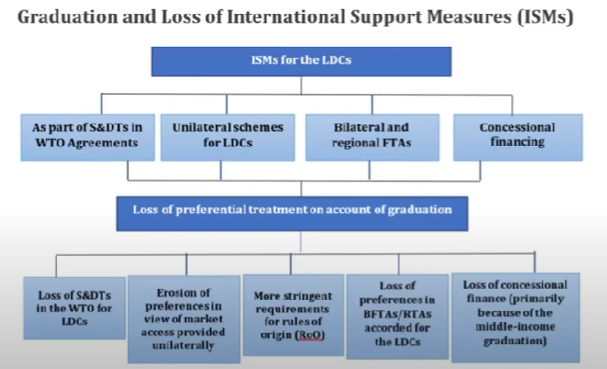
Bangladesh economy: As Bangladesh prepares for its historic graduation from Least Developed Country status in November 2026, the nation stands at a critical juncture in its development journey. This transition, while a testament to the country’s remarkable progress, introduces a nuanced set of opportunities and challenges that require strategic foresight and robust planning.
The concept of LDC was introduced by the United Nations in 1971 to identify a subgroup of developing countries needing special support for their developmental journeys. Bangladesh, having joined this group in 1975 shortly after its independence, has since leveraged international support measures to bolster its development trajectory. The criteria for LDC graduation, which involve crossing thresholds in income, human assets, and economic vulnerability, are rigorous. Bangladesh’s eligibility for graduation reflects its substantial progress across these areas, positioning it as a major player among graduating LDCs.
READ | Monetary policy: Steady rates steer India in choppy waters
Graduation and emerging challenges
Bangladesh’s journey towards graduation has been propelled by sustained economic growth, significant improvements in socio-economic indicators, and a transformative shift in its economic base from aid dependency to trade orientation. A pivotal factor has been the diversification of exports, particularly the dominance of the ready-made garments industry, which accounts for a substantial portion of the country’s export revenue. This transition has not only enhanced Bangladesh’s presence in global markets but also facilitated improvements in health, education, and infrastructure development.


The impending LDC graduation, while a milestone, brings forth challenges, notably the cessation of preferential market access and concessional financing. These challenges are compounded by domestic issues such as income inequality, low labour productivity, and a fragile macroeconomic situation exacerbated by global economic uncertainties. To navigate these complexities, Bangladesh is prioritising reforms and strategies aimed at enhancing competitiveness and productivity. The government’s proactive approach includes the Eighth Five-Year Plan, emphasising LDC graduation preparedness and a focus on regional cooperation and trade diversification.
Bangladesh is highly vulnerable to the impacts of climate change, including rising sea levels, floods, and cyclones. These events can wreak havoc on infrastructure, agriculture, and human life, potentially derailing economic progress. Investing in green infrastructure, early warning systems, and disaster preparedness plans will be crucial to mitigate these risks and ensure long-term economic stability.
Global integration for sustainable future
A strategic pivot towards regional integration and enhanced global trade relationships is central to Bangladesh’s post-graduation strategy. Engaging in comprehensive economic partnerships and trade agreements, particularly with neighbouring countries and within regional blocs such as the RCEP, is crucial for securing Bangladesh’s place in the global economy. This approach aims to mitigate the loss of LDC-specific advantages by fostering competitive advantages through technological advancement, investment in infrastructure, and attracting FDI.
Despite progress in education, skill development, and job creation, youth unemployment remains a significant challenge in Bangladesh. Closing the skills gap by aligning education with industry demands and promoting entrepreneurship can enhance employability and contribute to a more dynamic and diversified economy. Additionally, addressing gender disparities in the workforce can unlock further economic potential.

As Bangladesh looks beyond LDC status, the emphasis on inclusive growth that aligns with the Sustainable Development Goals (SDGs) and the national Vision 2041 is paramount. The challenges of graduation are multifaceted, encompassing economic, social, and environmental dimensions. Addressing these challenges requires a holistic approach that not only focuses on economic indicators but also prioritises social inclusion, environmental sustainability, and the development of human capital.
Strengthening governance and tackling corruption are critical for boosting investor confidence and promoting transparent and efficient economic activity. Streamlining bureaucratic processes, enhancing regulatory frameworks, and ensuring accountability can contribute to a more conducive business environment and attract foreign investment.
Bangladesh’s graduation from LDC status marks a significant achievement in its developmental history. However, this transition is not an endpoint but a new beginning. The road ahead is fraught with challenges, but with strategic planning, regional cooperation, and a focus on sustainable and inclusive growth, Bangladesh can navigate this transition successfully. The nation’s journey towards LDC graduation underscores the importance of resilience, adaptability, and the pursuit of comprehensive development strategies that can serve as a blueprint for other developing countries on a similar path.
(Prof Mustafizur Rahman is a Distinguished Fellow at Centre for Policy Dialogue, Bangladesh. This article is the edited transcript of his presentation at an online event organised by EGROW Foundation.)

